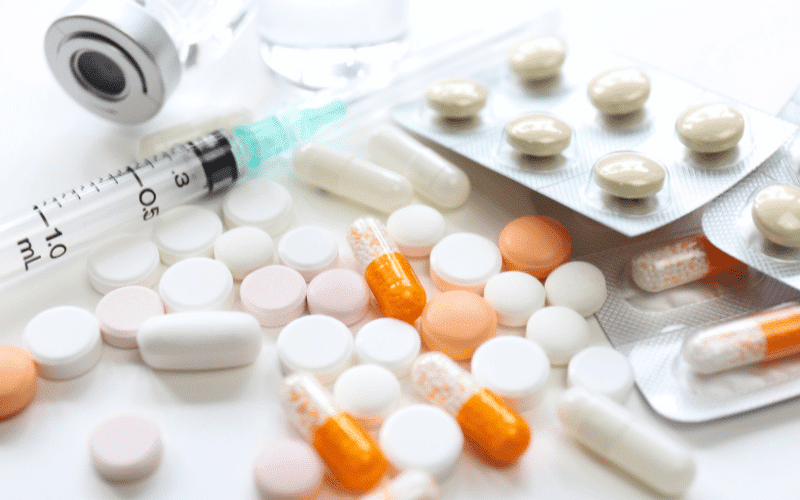Cause 8. Certain Medications

Medicinal Side Effects
Various medications can increase the risk of diverticulosis by affecting the colon’s function and overall gut health. For instance, nonsteroidal anti-inflammatory drugs (NSAIDs), such as ibuprofen and aspirin, can cause inflammation in the intestinal lining, which may contribute to the development of diverticula. Furthermore, opioids are known to slow down the gastrointestinal tract’s motility, leading to constipation and increased pressure within the colon.
In addition to NSAIDs and opioids, some medications used to treat high blood pressure, such as calcium channel blockers, can also affect gut motility and potentially contribute to diverticulosis. It’s crucial to understand that while these medications can increase the risk of diverticulosis, they are often necessary for managing other health conditions.
To minimize the risk of developing diverticulosis due to medication use, it’s essential to work closely with your healthcare provider. They can help determine the most appropriate medications for your individual needs while considering the potential impact on your gut health. In some cases, alternative medications may be available that pose a lower risk of contributing to diverticulosis.
Additionally, adopting a high-fiber diet, staying well-hydrated, and engaging in regular physical activity can help support healthy gut function and counteract the potential side effects of certain medications on the colon. It’s also crucial to follow your healthcare provider’s recommendations regarding medication use and to discuss any concerns or side effects you may be experiencing. (8)